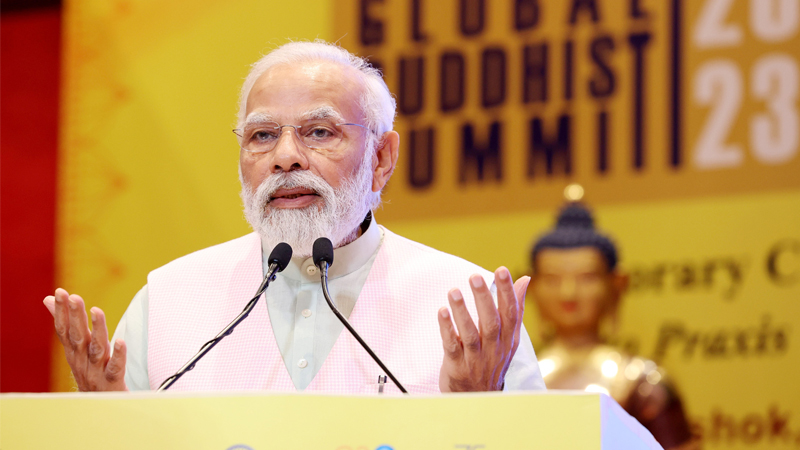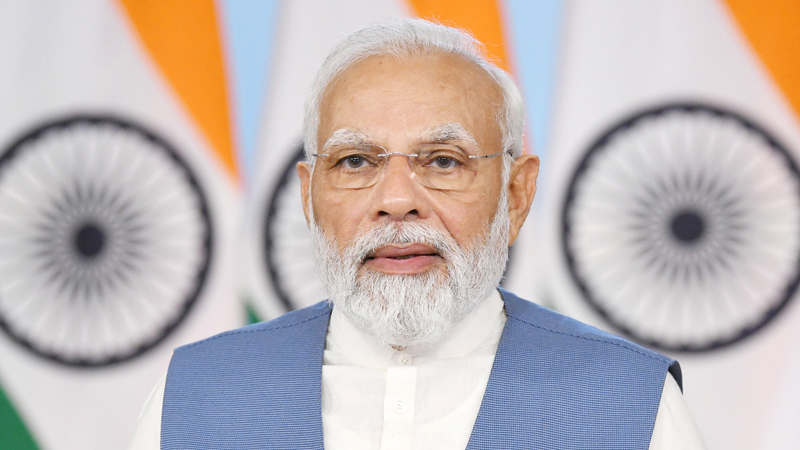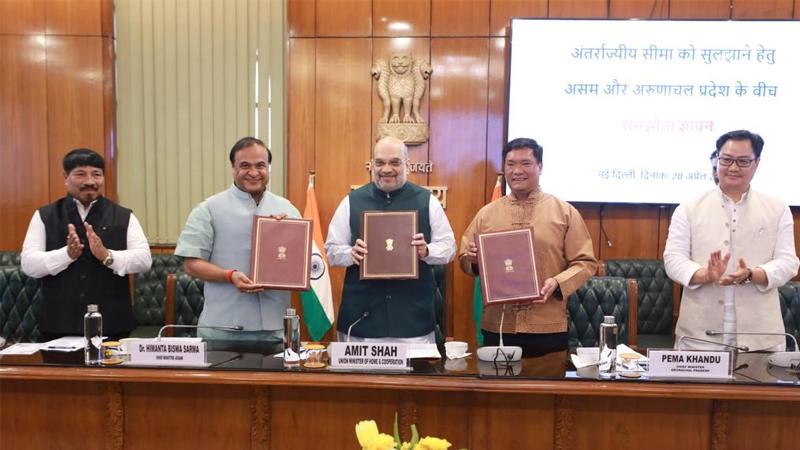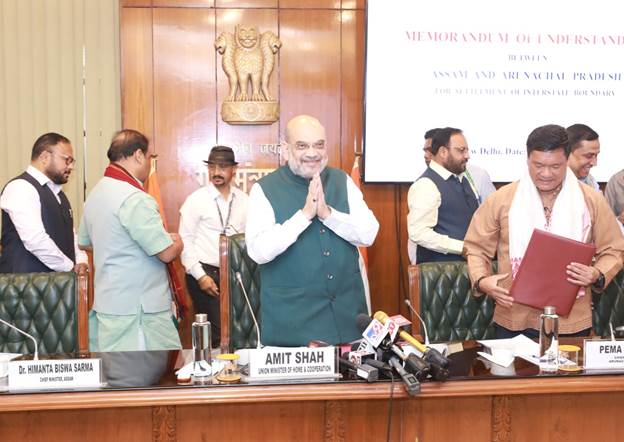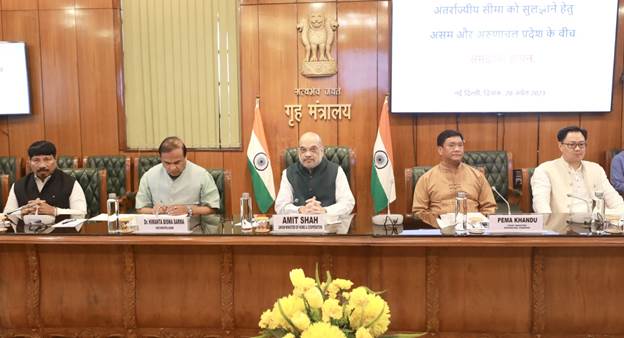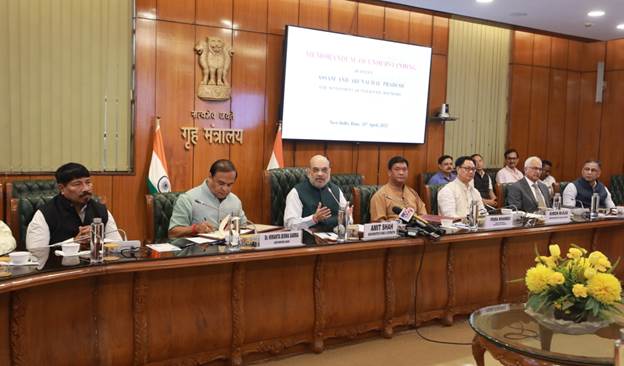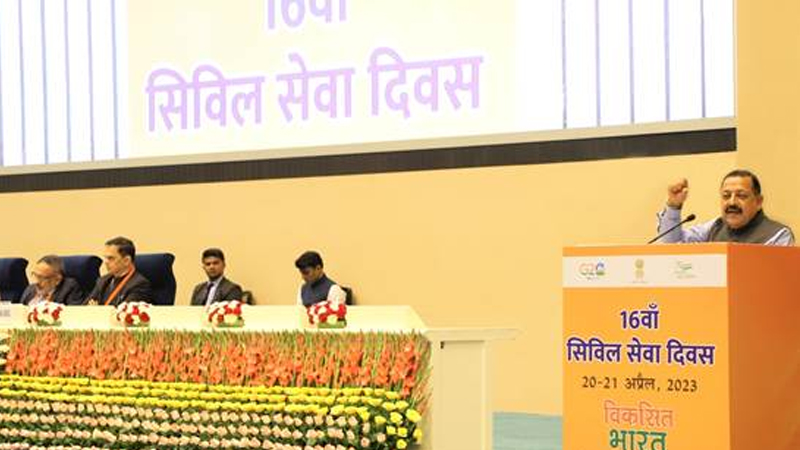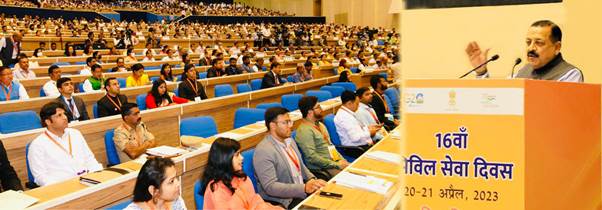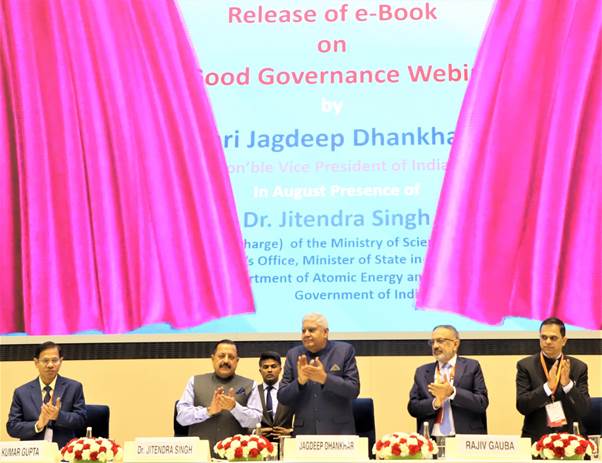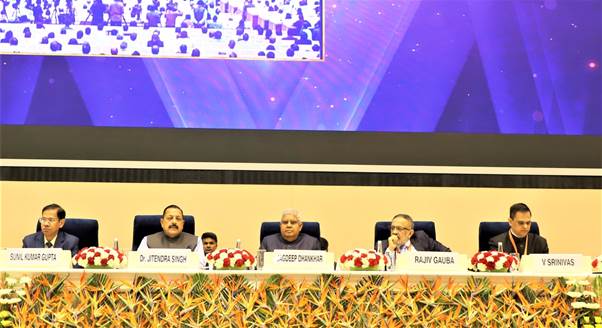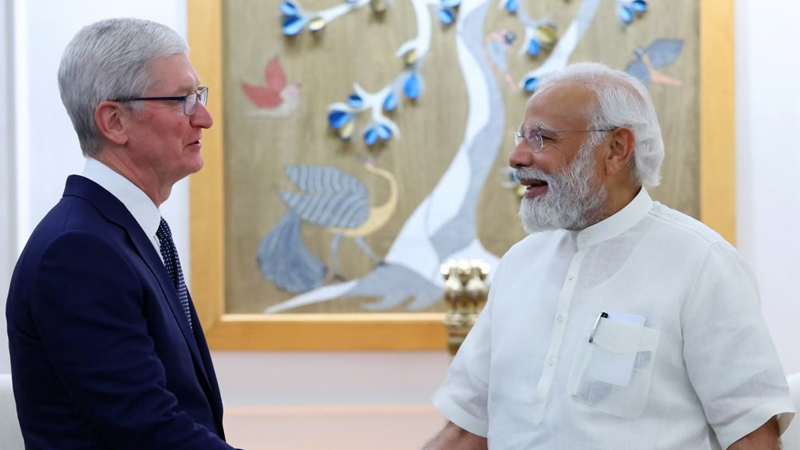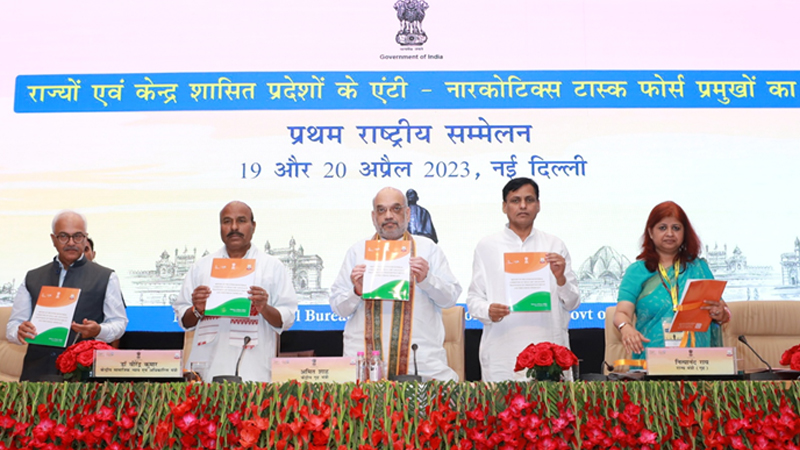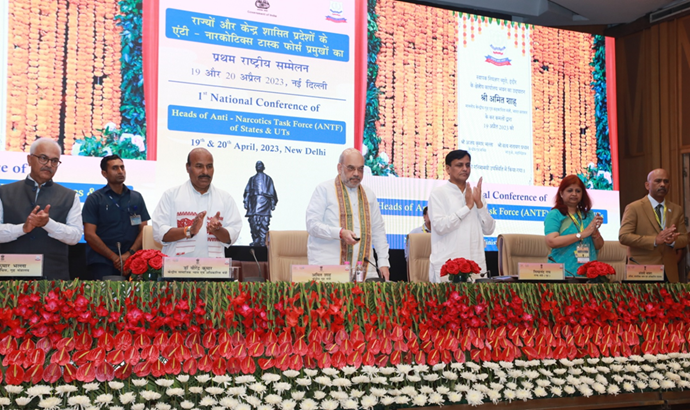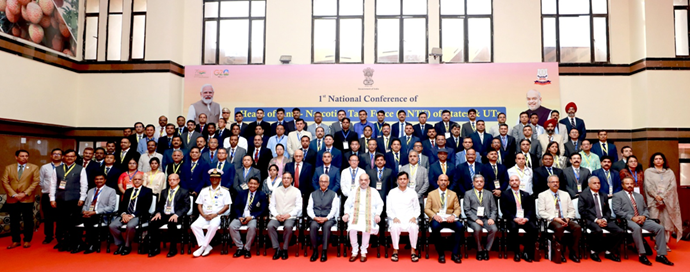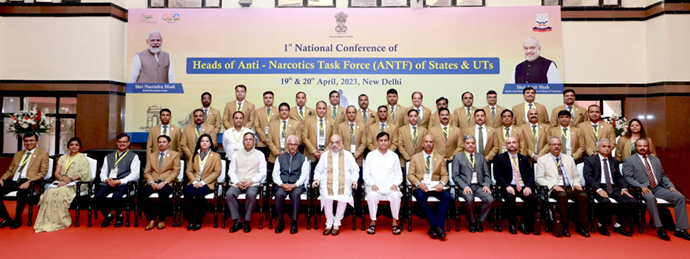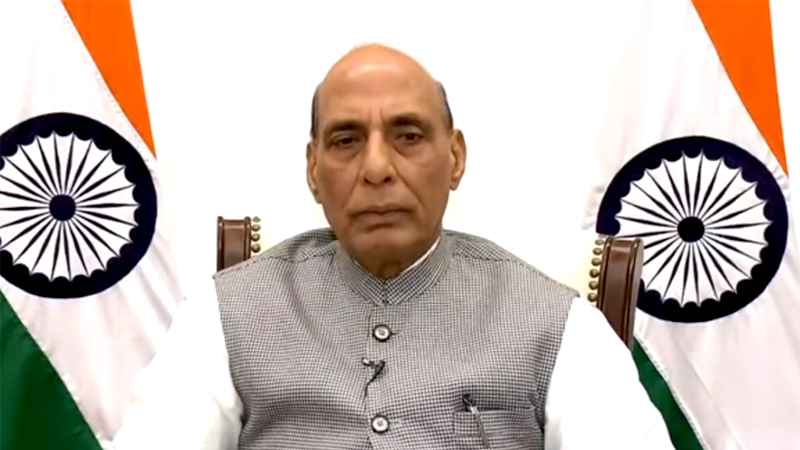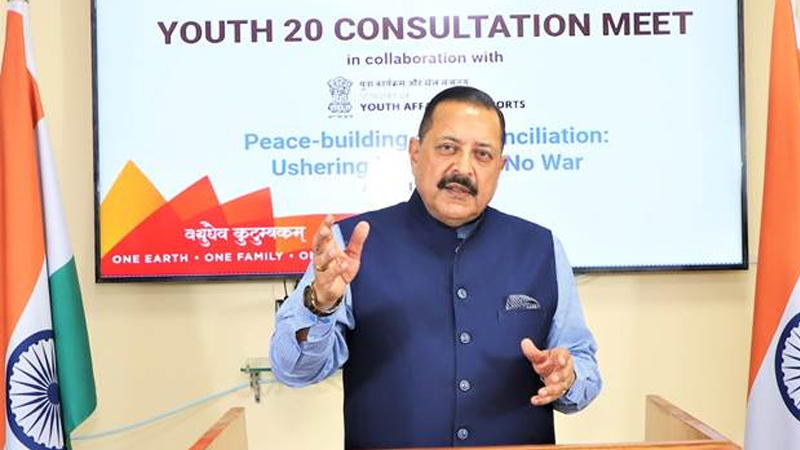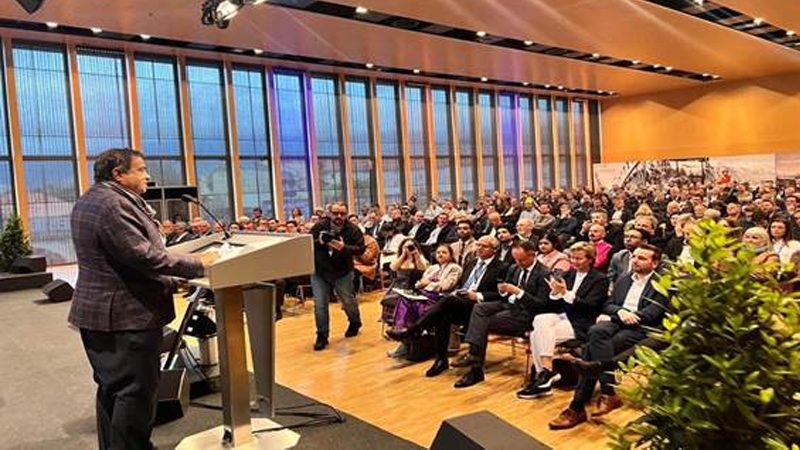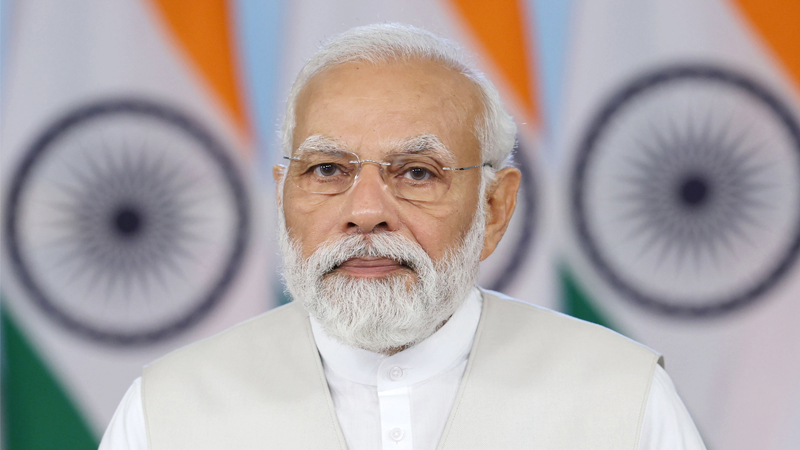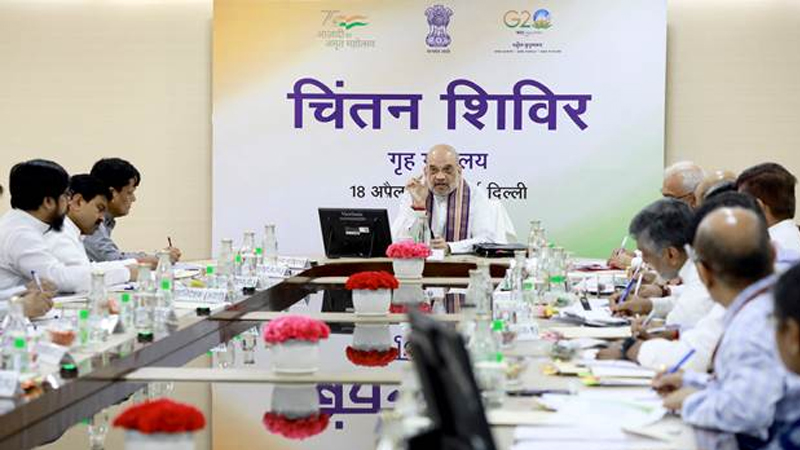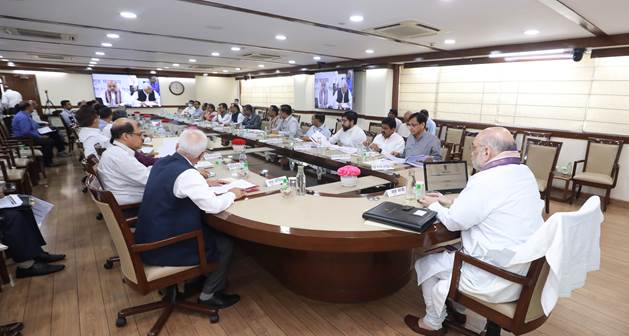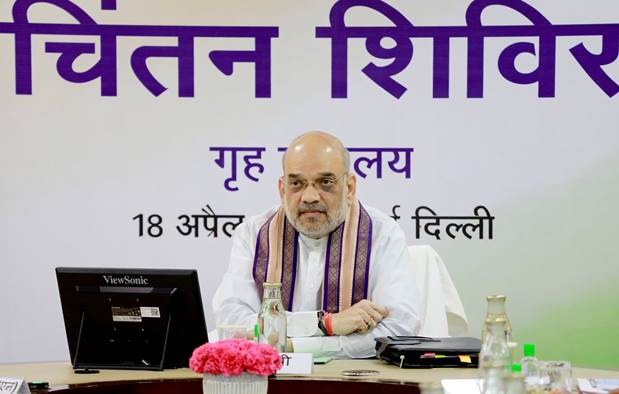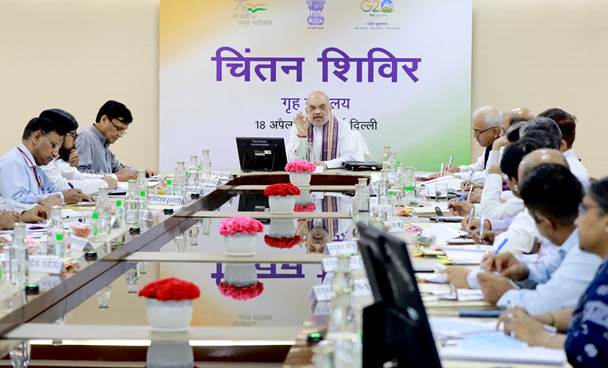The Prime Minister, Shri Narendra Modi addressed the inaugural session of the Global Buddhist Summit at Hotel Ashok in New Delhi today. The Prime Minister walked through the photo exhibition and offered flowers to the Buddha statue. He also offered monk robes (Chivar Dana) to nineteen eminent monks.
Addressing the gathering, the Prime Minister welcomed everyone from different corners of the world to the inaugural session of the Global Buddhist Summit. He underlined that ‘Atithi Devo Bhava’ i.e. guests are equivalent to God, is a tradition of this land of Buddha and the presence of so many personalities who have lived through Buddha’s ideals makes us feel the experience of Buddha being present himself around us. “Buddha is beyond the individual, it is a perception”, the Prime Minister said. The Prime Minister said that Buddha is a sensation that transcends the individual, he is a thought that transcends form and Buddha is a consciousness beyond manifestation. “This Buddha consciousness is eternal”, he said. He said the presence of so many people from diverse areas represents the expansion of Buddha that binds humanity in a single thread. He also underlined the strength of the collective will and resolution of crores of followers of Lord Buddha globally to make for the welfare of the world. Noting the occasion, the Prime Minister expressed confidence that the inaugural Global Buddhist Summit will create an effective platform for the efforts of all nations and thanked the Ministry of Culture and International Buddhist Confederation for this momentous event.
The Prime Minister highlighted his personal connection with Buddhism as Vadnagar from where he hails has been a major Buddhist center, Hiuen Tsang had visited Vadnagar. Shri Modi also mentioned Kashi in the context of Sarnath, deepening the connection with Buddhist heritage.
Noting that the Global Buddhist Summit is taking place during India’s 75th year of Independence when the nation is celebrating Azaadi Ka Amrit Kaal, the Prime Minister underlined that India has a major goal for its future and new resolutions for the global good. He emphasized that the inspiration behind India achieving the recent global landmarks in various sectors is Lord Buddha himself.
Remembering the Buddhist path of theory, practice and realization, the Prime Minister elaborated on India’s adoption of all three points in its journey in the last 9 years. Shri Modi said that India has worked with dedication for the propagation of Lord Buddha’s teaching with a sense of dedication. He talked about the development of Buddhist circuits in India and Nepal, the renovation of Sarnath and Kushinagar, Kushinagar International Airport, and India International Center of Buddhist Heritage and Culture at Lumbini in collaboration with the IBC.
The Prime Minister credited the teachings of Lord Buddha for an inherent empathy in India for the issues of humanity. He mentioned peace missions and India’s whole-hearted efforts in rescue work for disasters like the earthquake in Turkiye. “This emotion of 140 crore Indians is being seen, understood and accepted by the world”, he said. Platforms like IBC, he continued, are giving the opportunity to like-minded and like-hearted countries to spread Buddha Dhamma and peace.
The Prime Minister said, “The journey from the problem to arriving at the solution is the actual journey of Buddha.” Throwing light on Lord Buddha’s journey, the Prime Minister reiterated that he left his life of castles and kingdoms because he realized the pain in the lives of others. He emphasized the only way to achieve the goal of a prosperous world is when one gives away the idea of self and narrow-mindedness and realizes the totality of the Buddha Mantra of adopting the idea of the world. He stressed that a better and stable world can be achieved only if we consider the nations dealing with a scarcity of resources. “It is the need of the hour that the priority of every person and nation should be the interest of the world along with the interest of the country”, the Prime Minister remarked.
The Prime Minister said that the current time is the most challenging time of this century as there is war, economic instability, terrorism and religious fanaticism, and the challenge of climate change with species disappearing and glaciers melting. He said amidst all this there are people who believe in Buddha and the welfare of all creatures. “This hope, this faith is the biggest strength of this earth. When this hope gets united, the Buddha’s Dhamma will become the world’s belief and Buddha’s realization will become the belief of humanity.
Shri Modi underscored the relevance of Buddha’s teaching by saying that all the problems of modern times lend themselves to solutions through the ancient teachings of the Lord. Lord Buddha, the Prime Minister said, preached abandoning war, defeat and victory for eternal peace. He said enmity can never be countered with enmity and happiness lies in unity. Similarly, Lord Buddha’s teaching that one should first look at the conduct of the self before preaching to others can address the menace of imposing one’s own views on others so prevalent in today’s world. The Prime Minister came back to his favourite Buddha teaching अप्प दीपो भवः, be your own light to elaborate the eternal relevance of the Lord’s teachings. He remembered telling the United Nations a few years ago that ‘we are the country that has given the world Buddh, not Yudh (war)’.
The Prime Minister said “The path of Buddha is the path of the future and the path of sustainability. Had the world followed Buddha’s teachings, it would not have faced the problem of climate change.” This problem arose, the Prime Minister explained, as nations stopped thinking about others and coming generations. This mistake accumulated to catastrophic proportions. Buddha preached good conduct without any consideration of personal gain as such behavior leads to overall good.
The Prime Minister highlighted how each person is affecting the earth in one way or the other, be it with lifestyle, eating or traveling habits and pointed out that everyone can contribute towards fighting climate change. Throwing light on Lifestyle For Environment or Mission LiFE, an initiative by India influenced by the inspirations of Buddha the Prime Minister said that if people become aware and change their lifestyle, then this huge problem of climate change can also be tackled. “Mission LiFE is influenced by the inspirations of Buddha and it furthers Buddha’s thoughts”, Shri Modi remarked.
Concluding the address, the Prime Minister stressed the need to come out of the definitions of materialism and selfishness and imbibe the feeling of ‘Bhavatu Sab Mangalan’ i.e. Buddha should not only be made a symbol but also a reflection. He remarked that this resolution will be fulfilled only when we remember the words of the Buddha of not turning back and always moving forward. The Prime Minister expressed confidence that resolutions will become successful with everyone coming together.
Union Minister for Culture, Shri G Kishan Reddy, Union Minister for Law and Justice, Shri Kiren Rijiju, Union Ministers of State for Culture, Shri Arjun Ram Meghwal and Smt Meenakshi Lekhi, and Secretary General of International Buddhist Confederation, Dr Dhammapiya were present on occasion.
Background
The two-day Summit is being hosted by the Ministry of Culture in collaboration with International Buddhist Confederation on 20-21 April. The theme of the Global Buddhist Summit is “Responses to Contemporary Challenges: Philosophy to Praxis”.
The Summit is an effort towards engaging the global Buddhist Dhamma leadership and scholars on matters of Buddhist and universal concerns, and to come up with policy inputs to address them collectively. The discussion at the Summit explored how the Buddha Dhamma’s fundamental values can provide inspiration and guidance in contemporary settings.
The Summit witnessed the participation of eminent scholars, Sangha leaders and Dharma practitioners from all over the world, who will discuss pressing global issues and look for answers in the Buddha Dhamma based on universal values. The discussions were held under four themes: Buddha Dhamma and Peace; Buddha Dhamma: Environmental Crisis, Health and Sustainability; Preservation of Nalanda Buddhist Tradition; Buddha Dhamma Pilgrimage, Living Heritage and Buddha Relics: a resilient foundation to India’s centuries-old cultural links to countries in South, South-East and East Asia.


